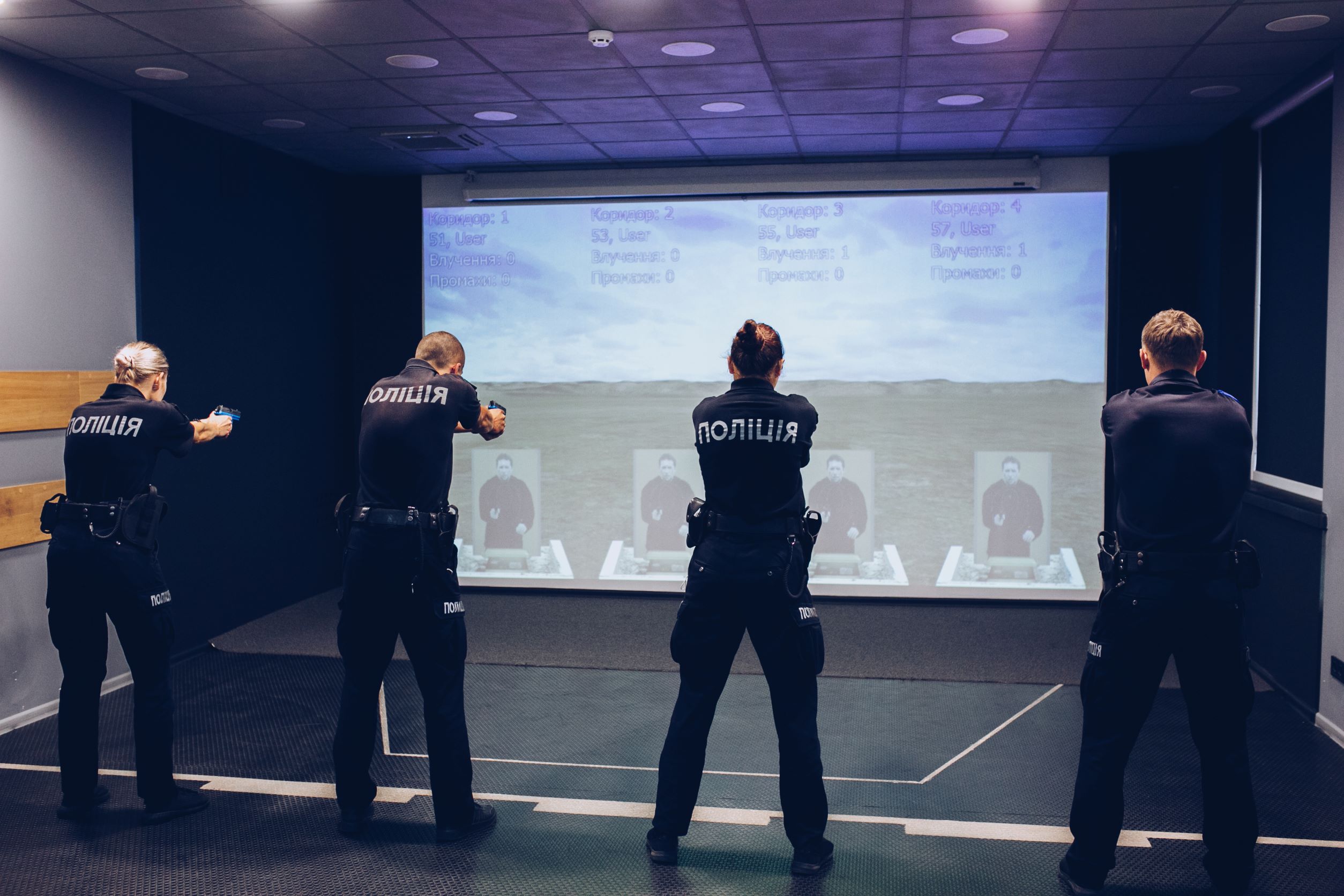
In 2018, after consultations with the National Police of Ukraine (NPU) and a comprehensive needs assessment, the Canada-Ukraine Police Development Project (CUPDP) funded by Global Affairs Canada, sought to integrate the use of simulation training for police officers in Ukraine. The project worked in in partnership with the Royal Canadian Mounted Police (RCMP) to draw upon its professional advice and guidance, align technical compatibility and further adapt scenario-based training. As part of its work, and at a broader level on International Day of Peace, CUPDP recognizes the importance of ensuring strategic priorities to maintain safe communities.
Simulation training offered several advantages in Ukraine. It was a cost-effective and innovative approach that built decision-making skills and basic firearms proficiency for police recruits. It also was especially relevant given that simulator training built the confidence of women who may not have familiarity with use of force interventions prior to their entry into the police service.
The simulator training program increased opportunities for female recruits with limited experience handling firearms in comparison to many of their male counterparts who may have entered the police academies following military service. Unfortunately, it was common for women to face unpleasant and potentially traumatic training experiences. Whether on the defensive tactics mats, driver training or on the firearms range, bad experiences can taint an entire career. Simulator training fostered skills and, more importantly, confidence by providing women with an opportunity to handle the firearm in a less stressful environment. The program “levelled the playing field” for female recruits to reach their full potential in the use of firearms.
The Patrol Police Academy has since made significant progress in adapting simulator training for police officers. It has created a foundation to expand the program to other law enforcement training institutes by drawing upon the training, evaluation and technical skills of Ukrainian faculty and their ability to develop and teach based on scenarios that reflect operational realities in Ukraine.
READ MORE: An in-depth look at Simulator Training at the Patrol Police Academy

Since 2016, CUPDP has focused on professional development, building trust in police and advancing the role of women in law enforcement in Ukraine.
As the project’s work evolved, the scope of the work did as well, with efforts turning to :
(a) Expanding the Patrol Police Academy to ensure quality training for a new generation of community-oriented police officers;
(b) Equipping serving officers with new skills and knowledge to perform their duties;
(c) Advancing the concept and application of community policing throughout the country; and,
(d) Strengthening the roles and raising the profile of women in the security sector though the Ukrainian Association of Women in Law Enforcement.
Alinea implements CUPDP within a broader Canadian framework and in partnership with the Canadian Police Mission in Ukraine (CPMU) and international partners.
